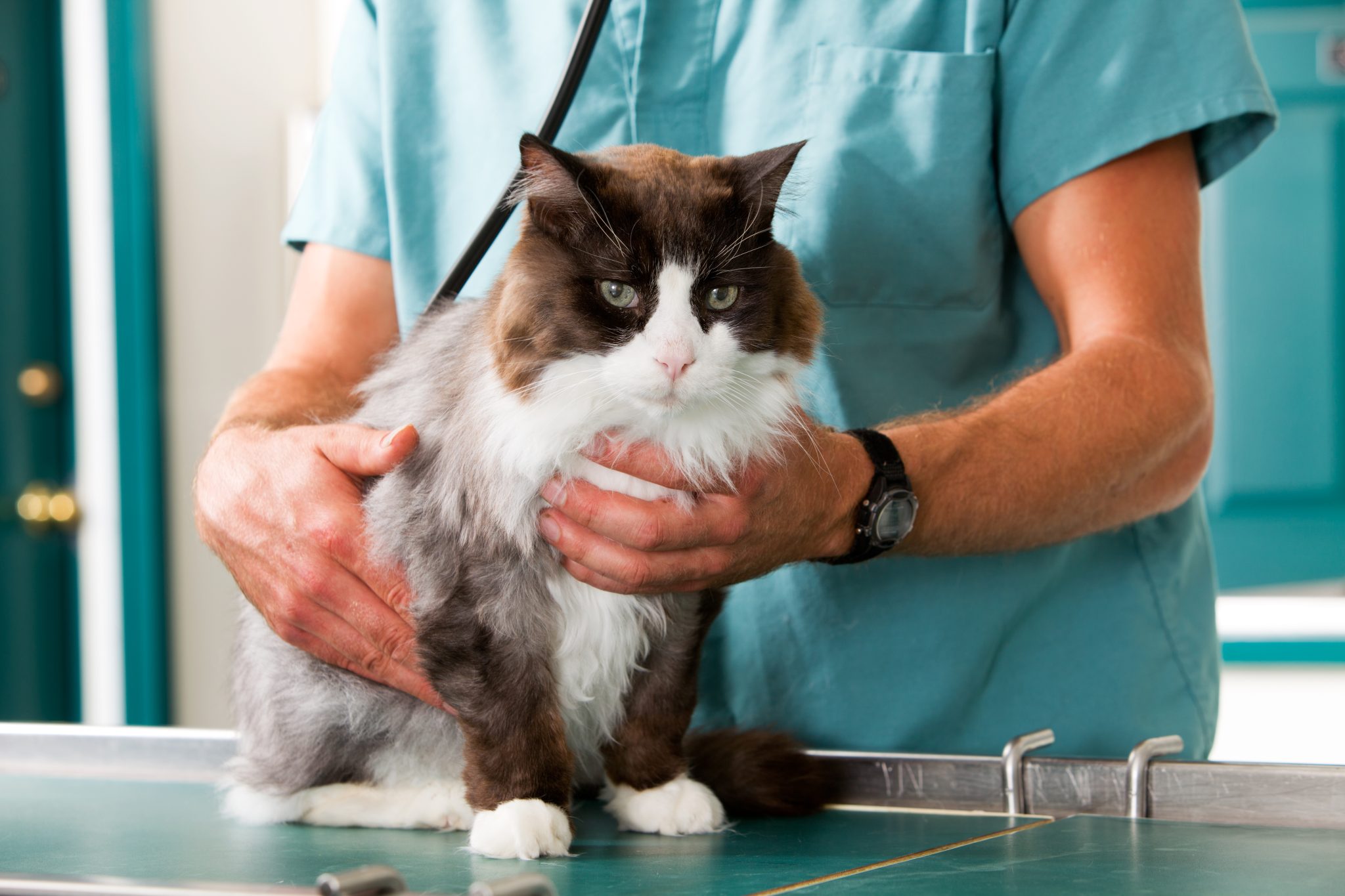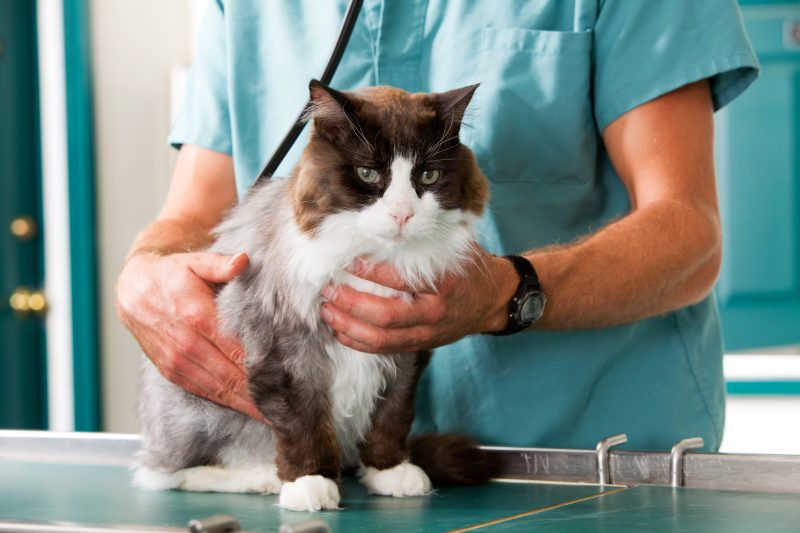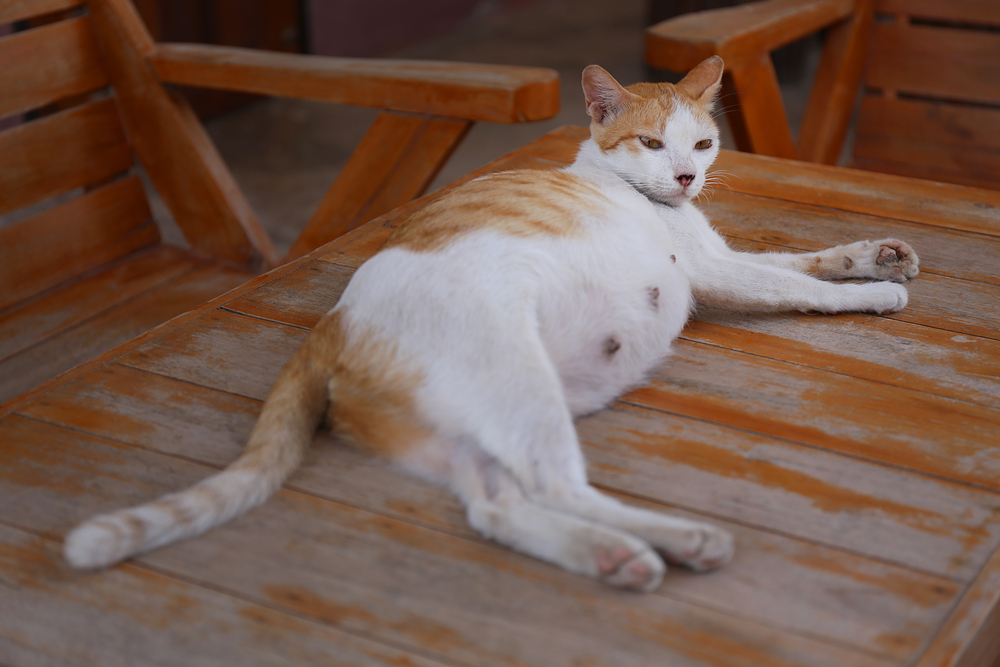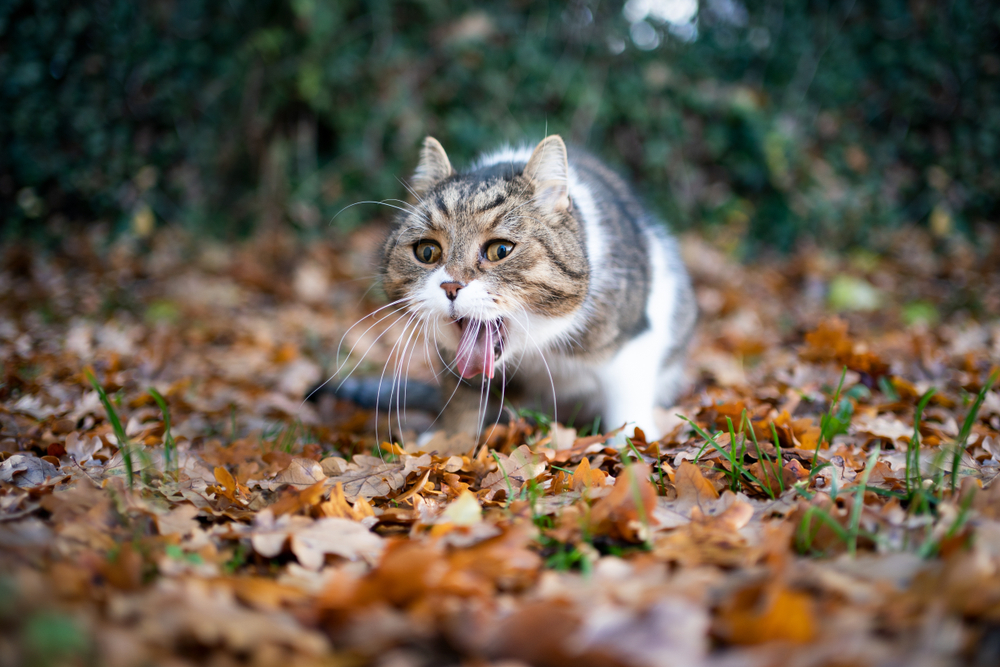Click to Skip Ahead
An occasional cough in healthy cats is normal. However, a cough that lasts more than a few days, reoccurs, is accompanied by weight loss or general malaise, or produces sputum, phlegm, or blood is a cause for concern, and your cat should be evaluated by your veterinarian as soon as possible.
Do Cats Cough?
Yes! Cats do cough. Coughing is a natural reflex to remove irritation and clear material from the respiratory tract. However, retching or gagging, such as when “coughing” up a hairball, is often mistaken for a true respiratory cough.
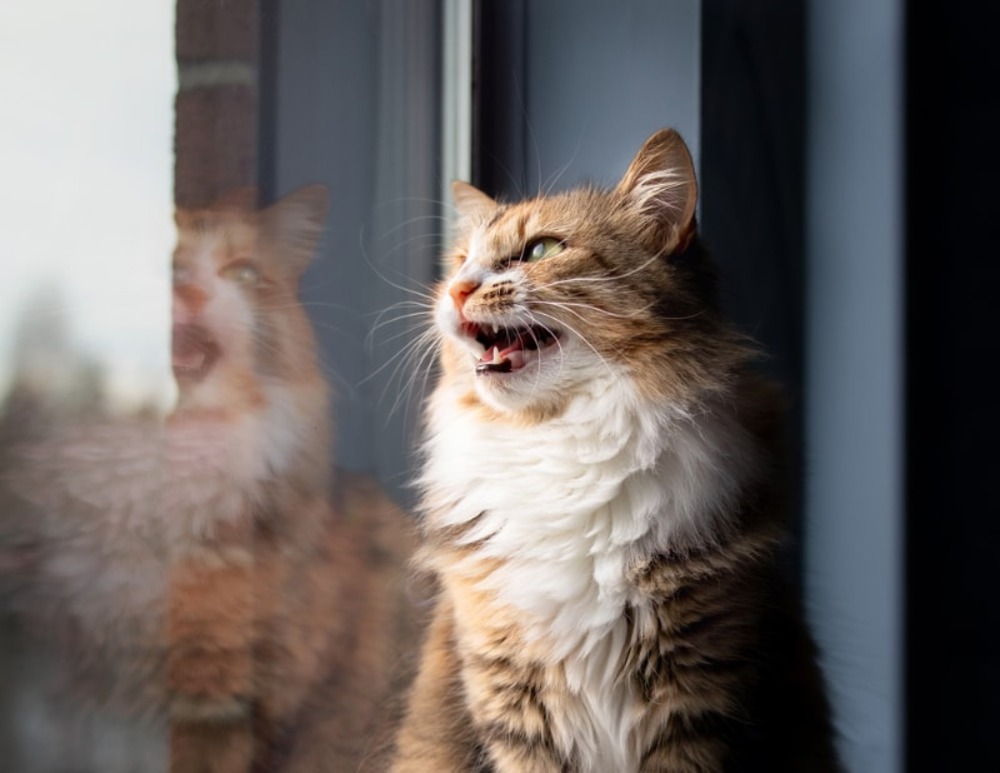
What Are the Signs of a Cough in Cats?
Coughing produces a sudden, forceful, and noisy expulsion of air from the lungs. In severe cases, cats may retch or bring up stomach contents after coughing.
What Causes a Cat to Cough?
Coughing is most often caused by irritation or inflammation of the mucous membranes lining a cat’s respiratory tract.
- Viral infections, such as feline rhinotracheitis
- Bacterial infections, such as Bordetella
- Parasitic infections, such as heartworm
- Fungal infections
- Allergies
- Asthma
- Foreign material, such as grass or dust
- Irritation from inhaled liquids/gasses/smoke
- Lung or chest tumors
- Heart disease
Interestingly, coughing in cats with heart disease is not as common as it is in dogs and people with similar conditions.
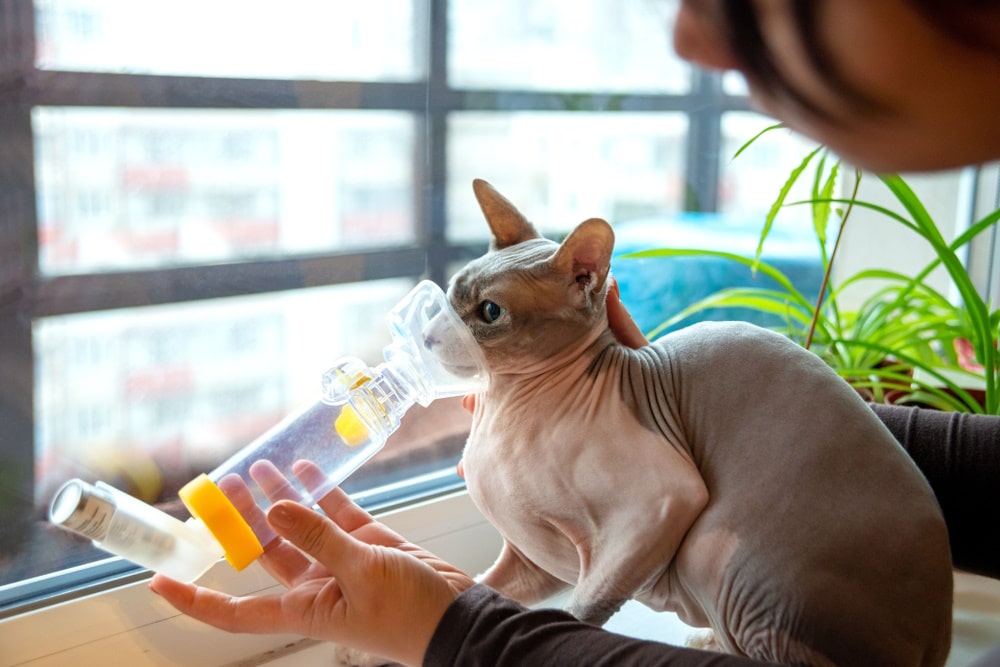
How Do I Care for a Coughing Cat?
The first step is to schedule an appointment with your veterinarian. They will gather a complete medical history, including any changes to your cat’s home or environment, and will perform a thorough physical exam. The vet may recommend certain tests, such as blood work, heartworm test, radiographs, ultrasound, urinalysis, and an endoscopic examination of your cat’s respiratory system. Fluid samples may be collected for your cat’s lungs for culture to aid in the diagnosis.
Treatment depends on the diagnosis. Cats with mild respiratory signs may be treated with a decongestant. Antibiotics may be prescribed after a primarily bacterial infection has been diagnosed, or if a viral infection has caused a secondary bacterial infection to take hold in your cat’s respiratory system. Antibiotics must be given as exactly as directed by your veterinarian. If an allergy has been diagnosed, anti-inflammatories may be prescribed. Chemotherapy may be recommended as an option in certain cancer cases. Steam therapy or nebulization may also be helpful.
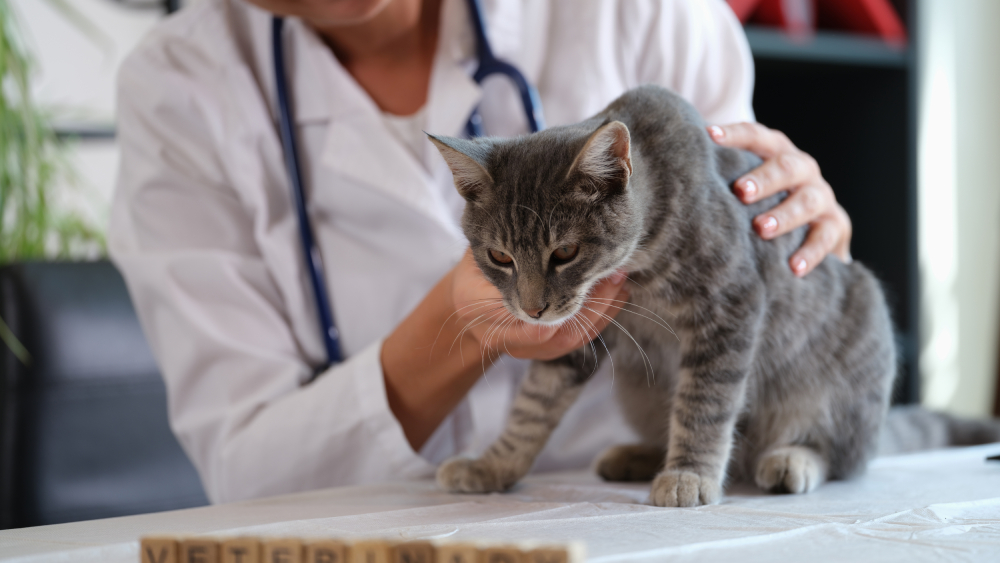

Tips for Keeping Your Cat Healthy
- Monitor your cat’s coughing episodes.
- Take note of any phlegm or discharge from your cat’s nose or mouth, and/or watery eyes.
- Observe your cat’s gums and mucous membranes. Any color deviation from pink should be evaluated by a veterinarian.
- Keep watch for any weight loss, behavioral changes, or general malaise that may indicate illness.
- Increased respiratory effort or labored or difficulty breathing should be evaluated by a veterinarian right away.
- Be sure your cat is current on their vaccines.
- Give medications to your cat exactly as prescribed.
- Avoid contact with other cats displaying respiratory signs.
- Prevent obesity.
- Avoid dusty or scented cat litter.
Conclusion
Although the occasional cough is normal in healthy cats, persistent, recurrent, or productive coughing is not. Causes may include inflammation or irritation of the respiratory tract, such as bacterial and viral infections, parasites, foreign material, or allergies. Treatment depends on the diagnosis and may include decongestants, antibiotics, anti-inflammatories, or respiratory supplements.
Featured Image Credit: Tyler Olson, Shutterstock

